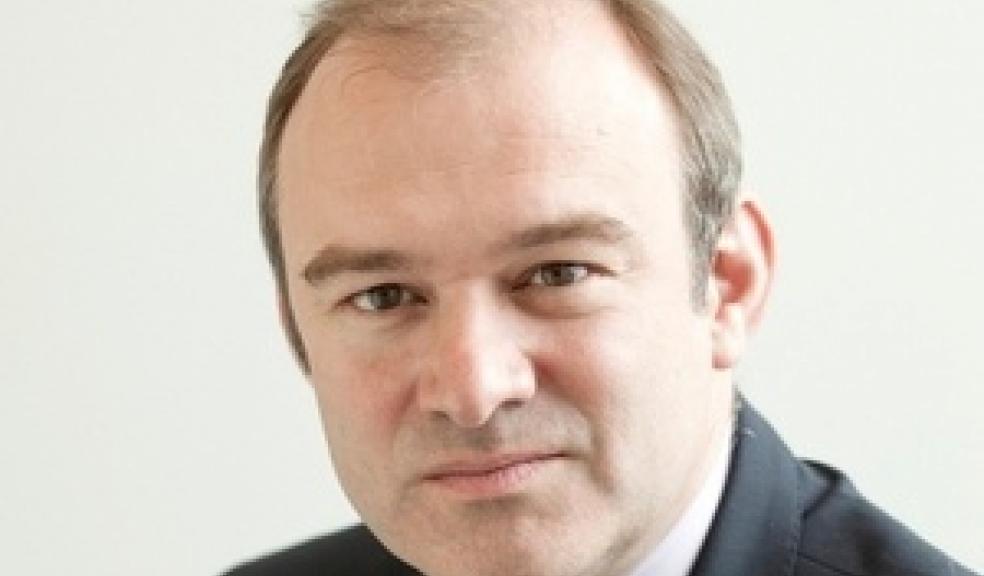
Government announces energy reforms to help consumers switch to the best deal
Reforms to make the energy market competitive and work in the public interest unveiled as part of the Annual Energy Statement 2013
Consumers will find it easier to switch and get the best deal, forcing energy companies to compete much more actively for their custom, according to the Government.
Energy and Climate Change Secretary Edward Davey announced the reforms on Thursday (31 October) aimed at ensuring the energy market is truly competitive and working in the public interest.
Mr Davey announced plans to make switching simpler and quicker, and a new probe into energy firms’ accounts, to make them more transparent on profits and prices, as well as increasing penalties for market manipulation and regularly checking that the market is working properly in today’s Annual Energy Statement.
Mr Davey said:
"The energy industry needs to change to put consumers in control. That means making it easy for people to change supplier to save money, it means regular market assessments to check their behaviour, and it means tougher penalties for market manipulation and putting an end to opaque finances.
"We want to push energy companies to make switching quicker and easier – because consumer action can force suppliers to change their ways. Bills are being re-designed through Ofgem’s retail market reforms to give people the information they need to make switching easy – and we are taking direct action through the Big Energy Saving Network to bring first hand help to those vulnerable people who find switching difficult.
"Energy companies need to know that any wrongdoing will be uncovered and dealt with. That’s why the regulators are going to carry out annual competition reviews, to make sure the energy market is operating properly. We are going to consult on increasing the sanctions for manipulation of the energy markets, so that they carry criminal penalties for the first time."
Mr Davey set out a number of new measures aimed at giving consumers more control:
- Energy companies will be told that they must make switching suppliers faster for consumers – with an ambition to move to switching in 24 hours, rather than the current five weeks, without increasing consumer bills.
First Utility have been leading the push towards faster switching and Mr Davey will meet with them over the next few weeks, along with Ovo, Spark, Good Energy, EON, Scottish Power, SSE and Co-op, and any other interested suppliers about how to make the switching process a lot faster.
As well as energy companies now being required to tell consumers about their cheapest tariff on the front of every bill, the Government says energy companies will be required to include a QR (Quick Response) code on energy bills, so that smartphone users can switch to the best deal through a few clicks on a mobile phone. As well as directly helping smartphone users, it will mean those giving advice on switching supplier to vulnerable people can instantly get the information needed to help them find the best deal on the market.
The Department of Energy and Climate Change (DECC) will also look at requiring energy suppliers to provide key data securely to third parties such as switching sites.
- Energy companies should be more open about how they treat credit balances in consumers’ accounts, making every effort to return money to customers with closed accounts.
Where that is not possible, Mr Davey said that energy companies should ring-fence that money to help their most vulnerable customers. Energy and Climate Change Minister Greg Barker will shortly meet energy suppliers to discuss issues around direct debits, including the level of credit balances that energy companies hold.
- DECC will work with the Post Office to signpost elderly and vulnerable people to the 500 volunteers being trained by the Big Energy Saving Network to help people find ways to cut their bills.
- Building on existing reforms to make the energy markets more competitive, Ofgem will carry out a market assessment every year, working with the Office of Fair Trading and the new Competition and Market Authority when established, to monitor the behaviour of market participants and ensure the market is working for residential and small business consumers and that all suppliers can compete fairly. The first assessment will be completed by Spring 2014.
- Financial transparency is critical for rebuilding consumer trust, so energy companies need to be much more transparent about how they report their finances. Ofgem will carry out a detailed assessment of energy suppliers’ financial reporting practices and set out necessary steps to improve transparency – so consumers can see where their money is going. This assessment will report in Spring 2014, alongside the first market assessment.
- Appropriate penalties for those organisations who step out of line are a crucial part of a fair market. DECC will consult on introducing criminal sanctions for those who manipulate the energy markets in the same way as manipulation of the financial markets attracts criminal penalties.
Caroline Flint MP, Labour’s Shadow Energy and Climate Change Secretary, commenting on the Annual Energy Statement, said:
“It’s another day, another policy that will do nothing to help people with their bills this winter. Hard-pressed energy customers struggling with the cost of living need action now, not endless reviews and consultations from an out-of-touch Government that refuses to stand up to the energy companies.
“What we need now is a price freeze because this is the only way we can deal with the energy companies overcharging. Labour’s energy freeze will save money for 27 million households and 2.4 million businesses, and our plans to reset the market will deliver fairer prices in the future.”
Mr Davey also set out the steps the Government is taking to increase energy security by attracting investment in new, clean generation and to ensure Britain’s electricity supplies remain secure in the short term.
He said: "This is a critical time for our energy future as we deal with years of neglect and under-investment. The choices we are making now will affect the lives of every person in this country for decades to come.
"We’ve done what’s necessary to make sure the lights stay on in the short term, while the record £35 billion investment we’ve attracted since 2010 will make sure that old, dirty power stations are replaced with cleaner, more efficient and more home-grown alternatives – ensuring energy security and more stable bills in the next 50 years."













